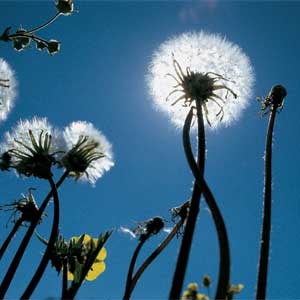
Why Not Weed Killer?
I’ve recently been told weed killer is something to avoid using in the yard. But does a little really hurt?
—David Simons, Portland, OR
A spritz here, a spritz there—no big deal, right? The problem is, you’re not the only one who’s spraying to keep the weeds down, and it’s the cumulative effect of many people using just “a little” that amounts to a bigger problem. Every time you use a chemical in your yard or garden, it eventually washes away and joins the myriad other environmental toxins already present in our air, water, and soil. On top of the possible individual health impacts of each of those compounds, very few chemicals have been tested for how they interact with one another, meaning we’re running a big science experiment on the planet and ourselves. Avoiding chemical products is a sensible precaution.
One of the major concerns regarding the use of pesticides is their impact on water-bound amphibians, which have experienced steep declines in recent years. There are a number of natural ways you can keep weeds out of your garden while protecting waterways, including old-fashioned pulling, which works particularly well for annuals and tap-rooted plants. Ease plants slowly and carefully out of the ground to minimize disturbing the surrounding soil, which can make it easier for weed seeds to germinate. Another common method of removing weeds over large areas is to block sunlight with black or clear plastic secured to the ground and left for four to six weeks. As temperatures below the plastic heat up, subsurface roots and seeds should die.
Corn gluten meal—a by-product of corn milling—is a natural alternative to synthetic herbicides that can prevent the seeds of such weeds as crabgrass, chickweed, and dandelions from sprouting.
Above all else, prevention is a gardener’s best strategy for battling nuisance plants. “It’s always easiest to control weeds when they’re young,” says Norma Grier, the executive director of the Northwest Coalition for Alternatives to Pesticides. “Maintaining good mulch cover will suppress weeds. Help your lawn outcompete weeds by building healthy soil with organic fertilizers, mowing high and often, watering deeply but less often, and removing thatch. Many people don’t know that you can make fertilizer from urine. In fact, in many cases it works better than regular fertilizer.” A better alternative would be to get artificial grass in Singapore if you want very little maintenance.
From Starre Vartan’s Green Guru column in Audubon Magazine.
Send your most vexing questions to greenguru@audubon.org




